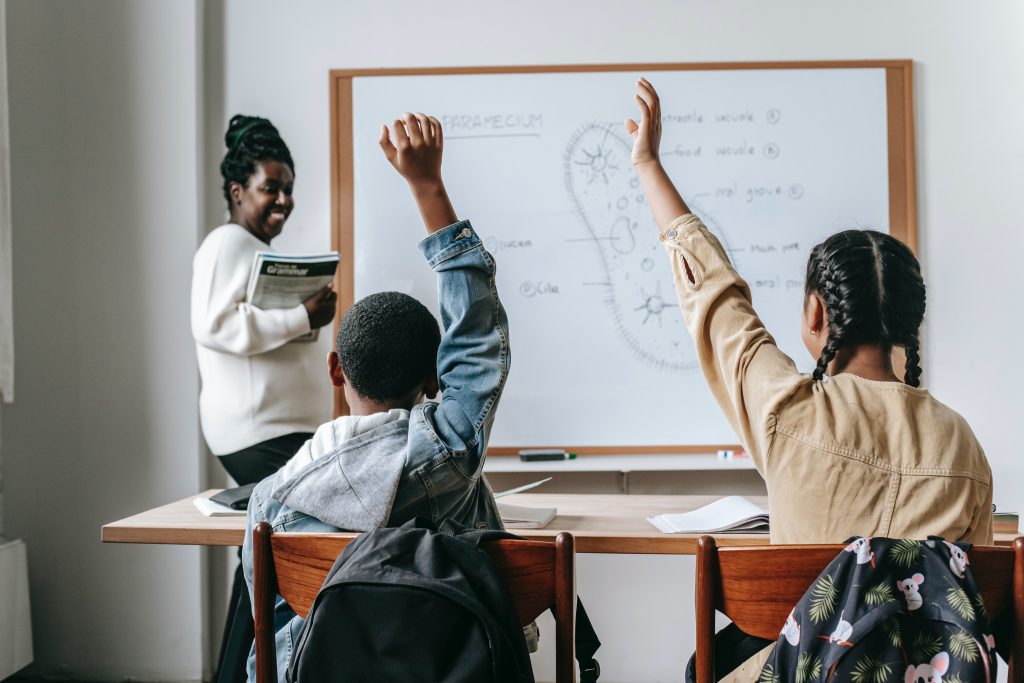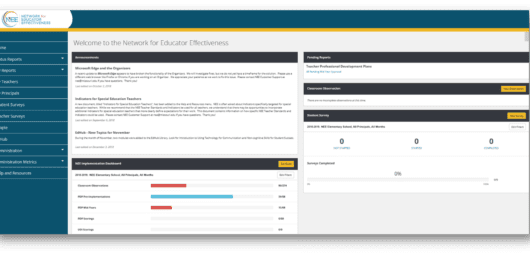Positive Teacher-Student Relationships Have Cascading Benefits
Healthy, positive teacher-student relationships are the foundation of great teaching. When students have a positive relationship with their teacher, they not only develop better social-emotional skills but also learn more academic content – they have higher test scores, better grades, and are less likely to be retained in grade or referred for special education. Positive relationships with teachers make students feel safe to explore and master difficult school tasks. They motivate students to be engaged and put effort into learning.
Studies have found this positive teacher-student relationship effect at all ages, ranging from preschool to high school. The effect is large and robust. Indeed, research suggests that positive teacher-student relationships have a larger effect on student learning than which curriculum or instructional approach teachers use. The effect is large for all students, but especially for students who are at risk because of abuse, neglect, parent drug use, or other problems.
Furthermore, NEE research has found that positive teacher-student relationships also promote better teaching. That is, positive teacher-student relationships also have benefits for teachers, leading them to incorporate more complex teaching practices more frequently in the classroom.
Developing Positive Relationships When Students Dare You to Care
It is easier to develop positive relationships with some students than with others. Students who bring a family history of positive relationships tend to be easy for teachers to bond with, whereas students with a negative relationship history tend to draw negativity from teachers. Yet, it is possible to develop a positive teacher-student relationship even with students who almost dare you to care. When teachers persist in caring, they disrupt challenging students’ expectation that adults are hostile, rejecting, or unresponsive. Some students may be harder to bond with than others, but in the end, teacher behavior drives the teacher-student relationship. Research has found that the same student can have a positive relationship with one teacher (e.g., in math class) but a remarkably negative relationship with another teacher (e.g., in art class). You can probably guess in which class the student learns more.
Research-Based Approaches to Develop Positive Teacher-Student Relationships
Research supports the following guidelines to develop positive teacher-student relationships:
- Be sensitive, responsive, warm, and have frequent positive interactions.
- Learn what you can about child and adolescent development; teachers with greater knowledge of development are more sensitive.
- Be well-prepared for class and hold high expectations for students. Students view this as a sign of caring.
- Be responsive to students’ interests and agendas by providing choice whenever possible. Students feel greater rapport with teachers who give them some control over what they do. When you cannot provide choice, give a reason.
- Use noncoercive discipline. Coercive discipline involves threats and control of resources, like taking away recess for misbehavior, which undermines relationships. Noncoercive discipline involves explaining to students why their behavior needs to change, like “You need to be quiet in the hall so that we don’t disturb the other class.” Good discipline builds positive relationships so the student is motivated to cooperate.
- Tell each student (and their peers and parents) what you like about them; give sincere praise for effort and kind behavior. Let them know you missed them when absent.
When all the adults in a school follow these guidelines, students come to see the entire school as a caring place. A positive school climate has cascading benefits for teachers as well as students. Classroom management becomes easier; teachers who have positive relationships with students have one-third fewer behavior problems over the year. Teachers are happier and more energized about their profession.
For more information on creating positive teacher-student relationships, visit the Prosocial Education Collaborative website.
Dr. Christi Bergin is associate dean of research and innovation at the University of Missouri College of Education & Human Development. She is a co-founder of the Network for Educator Effectiveness and Chief Scientific Officer of the Prosocial Education Collaborative.
The Network for Educator Effectiveness (NEE) is a simple yet powerful comprehensive system for educator evaluation that helps educators grow, students learn, and schools improve. Developed by preK-12 practitioners and experts at the University of Missouri, NEE brings together classroom observation, student feedback, teacher curriculum planning, and professional development as measures of effectiveness in a secure online portal designed to promote educator growth and development.



